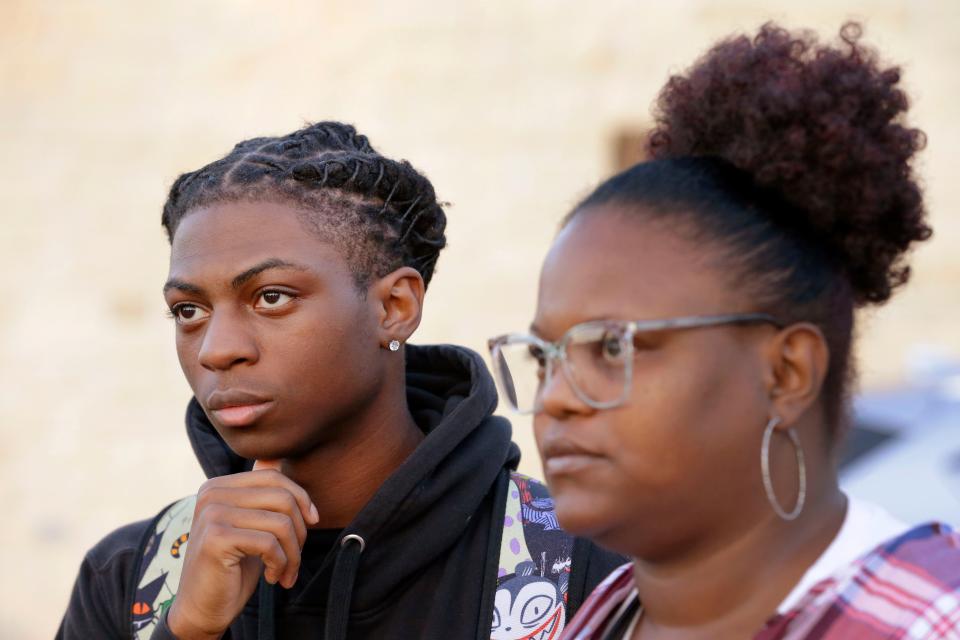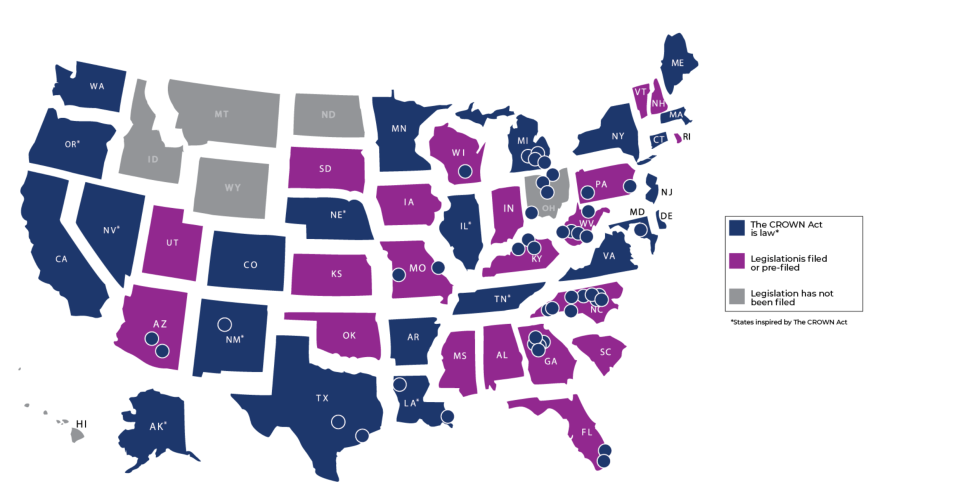Texas school district did not violate CROWN Act, judge rules
A Houston-area judge on Thursday determined that Barbers Hill ISD has not violated Texas' CROWN Act after the district repeatedly suspended a Black student for the length of his dreadlocks.
Judge Chap B. Cain III issued the ruling after a short trial in which lawyers for opposing sides argued over what the CROWN Act can and can't cover. Lawyers for Barbers Hill ISD said lawmakers would have included explicit language about hair length had they intended the law to cover it. Allie Booker, representing Darryl George and his mother Darresha George, said protective styles are only possible with long hair.
"You need significant length to perform the style,” Booker said. “You can’t make braids with a crew cut. You can’t lock anything that isn’t long.”

'I have the freedom to express myself'
Richard Walker, barber and owner of his barbershop, New York Stylez, said he hopes that further legislation can be passed to protect students from hair discrimination.
"I look forward to seeing what does happen, because I’m a firm believer myself,” he said. “But I'm not corporate. So I have the freedom to express myself and the type of hairstyle that I want to wear, but I do empathize for those that are in the workplace that want to do the same thing. And I hope that by them passing that law [CROWN Act] in the workplace, this will empower those to be able to have the same laws passed for those in school."
Shakira Nelson, who moonlights as a hairstylist, said the ruling leaves a sting to those who worked to get the CROWN Act passed.
“I work for corporate America,” she said. “And luckily for me, I work for a company that does not care what our hair looks like. Now granted, I do work from home, but we do have offices all over the U.S. where there are people who look like me that have dreadlocks who have braids, pink hair, blue hair, green hair, but guess what? Our company is doing billions right now. Showing that our hair does not matter, or does not determine what's in our mind, what's in our brain and ability to do our job or even get an education.”
What does Texas' education code say about 'protective hairstyles?'
The language of a Texas education statute (Tex. Educ. Code § 25.902) passed last year could raise further arguments if an appeal is filed.
"Any student dress or grooming policy adopted by a school district, including a student dress or grooming policy for any extracurricular activity, may not discriminate against a hair texture or protective hairstyle commonly or historically associated with race," the statute says.

What is the CROWN Act?
The CROWN Act (or House Bill 567), which stands for "Creating a Respectful and Open World for Natural Hair," was passed on a bipartisan vote in the Legislature and signed into law by Abbott last May. It made Texas the 21st state to ban race-based hair discrimination.
The law prohibits discrimination in schools, workplaces and housing based on certain hair textures or protective hairstyles historically and culturally associated with race.
Hairstyles worn by black women and men are protected under Texas labor codes against racial discrimination based on hair texture or protective hairstyle.
“An employer, labor union, or employment agency commits an unlawful employment practice if the employer, labor union, or employment agency adopts or enforces a dress or grooming policy that discriminates against a hair texture or protective hairstyle commonly or historically associated with race,” the statute says.
What hairstyles are protected by the CROWN Act?
The CROWN Act would ensure protection for Texans who wear their hair in natural styles such as braids, locs, twists or knots.
Which states have a CROWN Act?

More than 20 states have enacted the CROWN Act, and similar legislation has been filed in several other states. The CROWN Act was passed in these states:
Texas
Alaska
Louisiana
California
New Mexico
Colorado
Nevada
Oregon
Washington
Arkansas
Tennessee
Nebraska
Minnesota
Illinois
Michigan
Virginia
Maryland
Delaware
New Jersey
New York
Connecticut
Massachusetts
Maine
A national version of the CROWN Act passed the U.S. House last year but failed in the Senate.
This article originally appeared on Austin American-Statesman: Texas school district did not violate CROWN Act, judge rules

